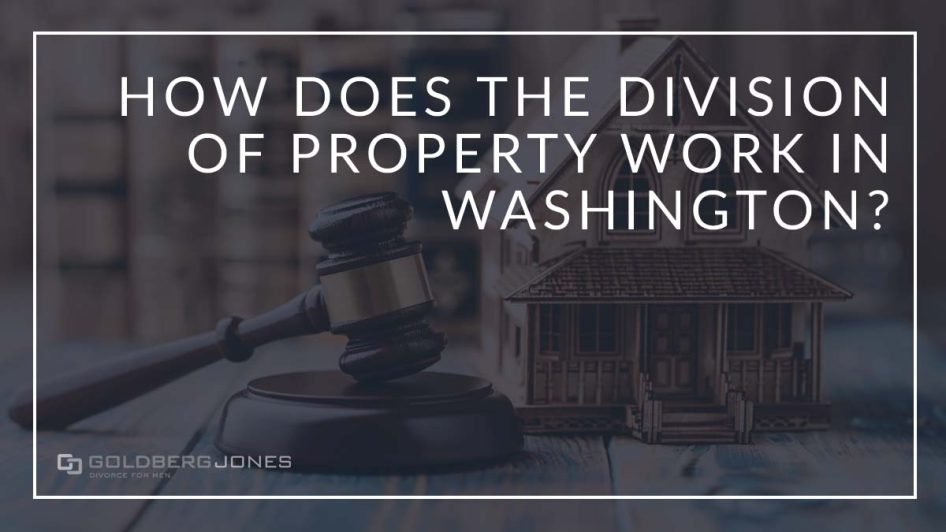Over the course of a marriage, you acquire things as a couple. If you divorce, a key part of this process is splitting up all of the things you acquired. People ask us about this step all the time. When it comes to the division of property in Washington, the state follows certain guidelines.
How are assets divided in divorce in Washington state?
Washington follows what are known as community property statutes. Washington is one of the handful of states that still practices community property. Only nine of the 50 states—and Alaska by agreement—in the union adhere to this model. The rest abide by equitable distribution.
Community Property
So, Washington is a community property state. What does that mean in a practical sense for you and your divorce?
What it means is that the courts view all property, assets, and debts acquired during a marriage as belonging equally to both spouses. The law presumes joint ownership, no matter who acquired a particular asset.
In short, if you acquire or earn something during a marriage, that generally constitutes marital property. Despite a name on a title, Washington presumes both spouses contributed to any assets acquired during the marriage, whether the case or not.
This doesn’t mean you split everything 50/50 in a divorce. Property equally acquired is subsequently equally distributed in divorce, in a fair, equitable fashion.
In most cases, the court aims for both parties to emerge from divorce on relatively even footing. They also want you and your ex to maintain a lifestyle similar to what you had during the marriage. It doesn’t always work out that way, but that’s the goal.
Related Reading: Does Washington Have No-Fault Divorce?
Separate Property
As the name implies, separate property belongs to one spouse or the other. This usually takes the form of something owned before marriage. This category also includes gifts or inheritances received during the marriage. If you wind up with an inheritance, that stays with you. The same goes for gifts, unless it was given to both of you.
During the divison of property, the court can include separate property if fairness dictates. In general, however, it remains with the owner.
In longer marriages, things become much more intertwined and the line between separate and marital property tends to blur.
For example, if your spouse owned a home before you married, but you contribute to the upkeep and repairs, and help maintain or increase the value. Or if you use shared funds for this purpose. That often entitles you to a portion of that asset in a divorce.
Related Reading: The Importance Of Jurisdiction In Divorce
Does Washington Have Equitable Distribution?
The short answer to this question is: no.
Our neighbor to the south, Oregon, along with most other states, practice what’s called equitable distribution. Essentially, this method views property as belonging to the individual spouse who earned it. No set rules for the division of property exist, but the court divides the assets between both parties in a fair and equitable manner.
As stated, community property doesn’t mean courts split everything down the middle in a divorce. The general idea behind both approaches is similar, each aims to set both parties up as best as possible moving forward.
Related Reading: How Is Debt Divided in Washington State?
From The Radio:
Rick Jones, our founding partner, regularly appears on The Danny Bonaduce and Sarah Morning Show. He answers listener questions about divorce and family law. No surprise, this often includes questions about the division of property.
Listen to some related calls below:
CALLER: “I’m trying to find out how much I need to buy my soon-to-be-ex-wife out of the house.”
CALLER: “Will my spouse’s family trusts be subject to community property rules in divorce?”
CALLER: “She’s grown so angry and hateful, I’m concerned he’s going to target my ‘man toys’ in the divorce. Can I prevent her from taking them?”
Related Reading: How Is Debt Divided in Washington State?

Comments 2
Would like to know information and methods of keeping premarital assets separate and prenuptial agreements.
Hi Will,
We’d love to talk about the details of your situation and let you know how a prenuptial agreement may be useful to you in protecting your assets.
The best way to proceed is to give our office a call at (206) 448-1010. We can set up a free phone consultation with Ken Alan, our managing attorney. This will give us the chance to get more specific details about your case and talk about your options.
There’s no obligation, but hopefully, we’ll be able to answer a few of your questions and give you an idea of how best to move forward.
Additionally, you can fill out a free online case review by following this link and we will contact you: https://www.goldbergjones-wa.com/free-case-review/
Hope to hear from you soon!